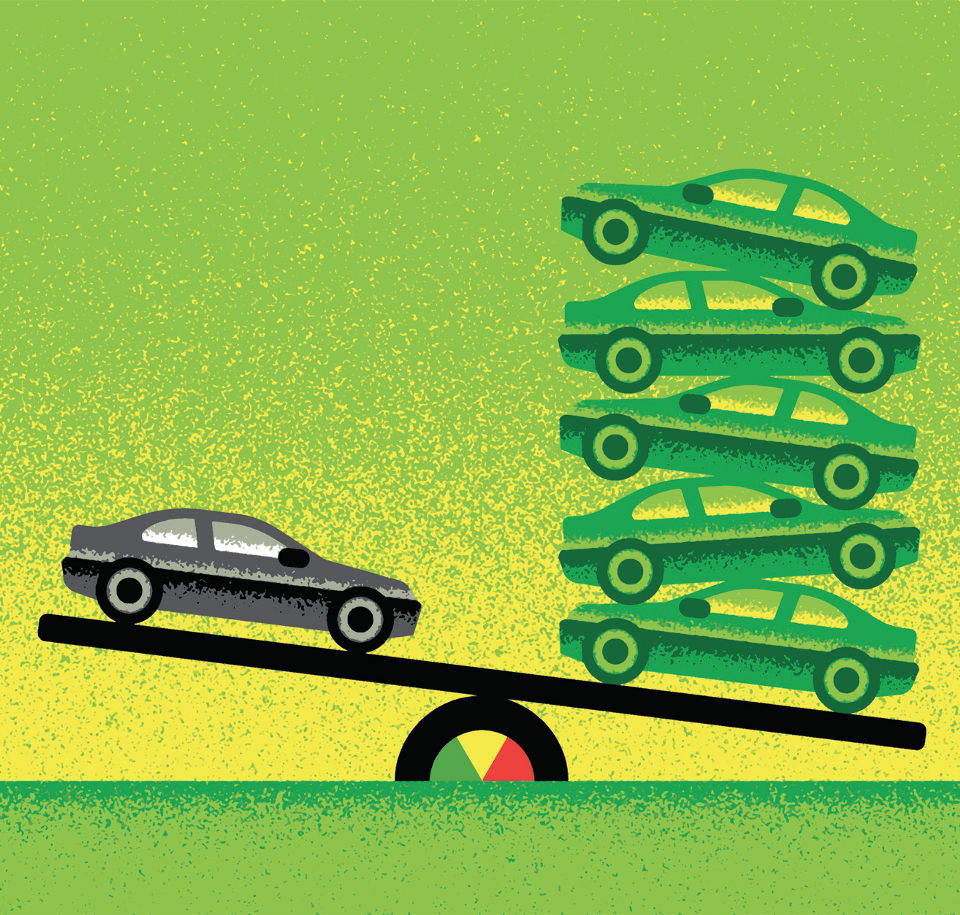A Sober Utopia, January/February 2017
Such a place needs to be preserved and duplicated. The philosophy of providing a place for these people to find their own way out of their quagmire should be preserved and implemented elsewhere. The simple economics of having addicts trapped in the streets and drawing on public coffers versus the reduced cost, and success rate, of this place more than justifies the existence and duplication of the model.
— Stanley Roger Boyer
The City of Dentists, January/February 2017
Forget gross domestic product. You can judge the real standard of living of a nation by the state of the teeth of the working class. We have excellent nationalized health care in Australia but it doesn’t include dentistry. So you can tell how well-off people are by the state of their teeth. It’s an absolute disgrace. In Australia they’re starting to fly to Thailand for major dental work. Go figure that one.
— Michael Elliott

Jevons Paradox, January/February 2017Using the piece’s refrigeration example: Refrigerators tend to get filled up. And nowadays, as noted, overall household refrigeration capacity is considerable. In this constant filling and refilling of our refrigerators a great deal of food items get thrown out — freezer burn, food items past their expiration date, etc.
The “rebound” — if you wish to call it that — occurs when you throw out that two-year-old Costco-size bag of frozen vegetables hidden in one (or one in each) of your refrigerators. The net result being one has wasted all of the energy that went into growing, packaging, and transporting that bag of vegetables, and additionally wasted two years of your personal refrigeration energy storing it.
— Darren Wilson
Dear Skiers: It’s Time to Turn Words Into Action on Climate Change, December 2016
Unfortunately, the actions Berwyn is suggesting are very weak chess pieces on the board. While individuals need to understand the idea of their carbon footprints, committing to reduce your carbon footprint to be in line with the Paris Agreement is not really a strategy. Let’s say a million people went with the idea; that only leaves seven billion people and change who won’t. But doesn’t every little bit help? Psychologically perhaps, but not in terms of climate change. When it comes to Climate Chess we need to find things to do that might actually make a difference.
— Mark Trexler
I agree that individual climate action isn’t going to solve the problem alone, but I stick with my point that relying on someone else to solve the problem was never going to work. And I was writing from the heart, mainly as a skier!
I can also envision the ski industry cynically (or maybe realistically) just going down the road of trying to shift most of its business to other seasonal activities. Individual climate action broken down by sector (food, transportation, recreation) can help push the transition to a renewable energy economy, but I recognize that stronger mechanisms are needed.
Absent national policies or leadership, we should tackle some of that at other levels. I see individual action as a building block toward community action, which could take shape as the regional carbon programs that I briefly mentioned but did not fully develop in this essay. It’s highly unlikely there will be a national carbon tax in the next four years, so what else can we do?
I’ve always been a little (actually a lot) skeptical of the NSAA’s greenwashing, but when I took a look at the latest Climate Challenge and the new sustainability report, it’s clear that it’s a work in progress. To spell out the carbon footprint of individual resorts and set (admittedly voluntary) targets is an important step in the right direction, and it may be the best we can get right now, so let’s push to make it even better.
— Bob Berwyn
Economic Inequality in the U.S. Is Far Worse Than You Thought, December 2016
The only trickle-down of trickle-down economics is the average person getting pissed on!
— Donna Morgan
Only 43 Percent of California’s Rural Residents Have Broadband Internet Access, December 2016
[Paulas] implies that the managers of farms are part of the 43 percent that don’t have broadband access, not part of the 57 percent that do, and that mobile Internet or other access doesn’t work for these use cases. Pretty sure the tractor doesn’t need Wi-Fi or other access while driving. I agree that access should be expanded, but this last section seems like a stretch.
— Chris Van Löben Sels
Explore more stories from the March/April 2017 issue of Pacific Standard.





